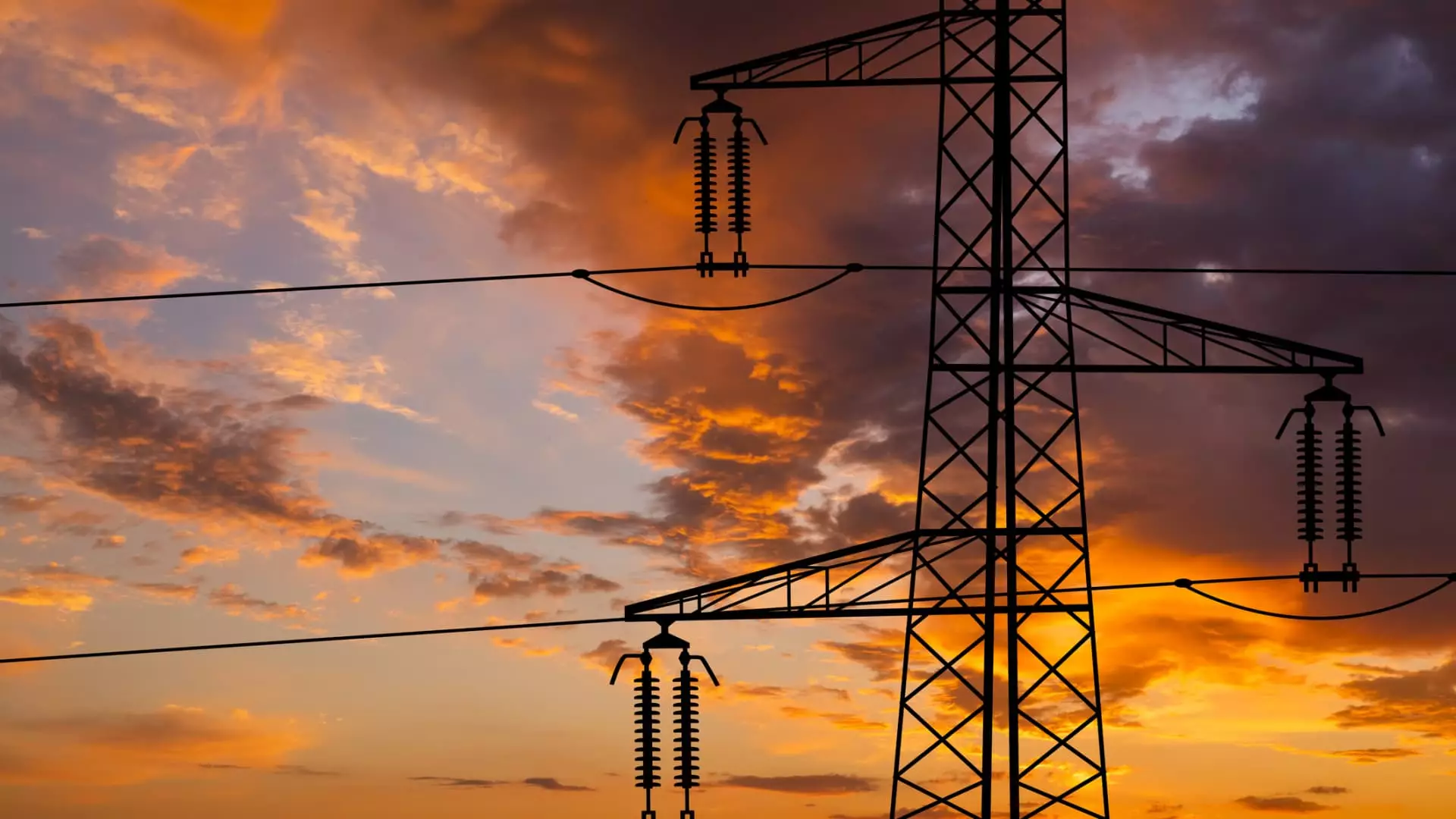The tension in Ukraine escalated dramatically over the weekend as a series of missile strikes rattled the nation’s capital, Kyiv, alongside other major cities. This offensive, marked as Russia’s most significant assault since August, targeted critical power infrastructure—a calculated move as winter approaches. The Ukrainian populace has been on high alert for weeks, anticipating further aggression that could cripple the already vulnerable power grid, compounding their hardships with extended blackouts and increased psychological stress. As officials reveal, such attacks aim to exert pressure on Ukrainians, hoping to fracture their resolve as the war continues to unfold.
Ukrainian Energy Minister German Galushchenko confirmed via social media that significant airstrikes against energy generation and transmission facilities were underway. The ominous sound of air defenses engaging enemy drones echoed across Kyiv during the early hours, a testament to the dire reality that civilians are facing. Each blast from the missile assault reverberated throughout the city, signaling the severity of the situation. While the overall extent of the damage remains unclear, precautionary measures were enacted swiftly, with power supply cut in multiple districts of Kyiv and the surrounding areas to mitigate the consequences of potential damage to the power system.
Impact on Civil Infrastructure
The night’s violence was not confined to the capital. Reports of damage emerged from various regions, including the Volyn region, although precise details were scarce. This opaqueness is common in wartime, as officials often withhold information to prevent the enemy from gaining insight into the state of the country’s resources. In the southern city of Mykolaiv, two civilians tragically lost their lives in a drone attack, highlighting the brutal reality of armed conflict where innocent lives are often caught in the crossfire.
Cities such as Zaporizhzhia and Odesa felt the tremors of bombs, and regions like Kryvyi Rih and Rivne reported similar explosions. Such coordinated strikes illustrate a broader strategic approach by Russia, characterized by their assault on civilian areas and infrastructure. Ukrainian Foreign Minister Andrii Sybiha echoed this sentiment, condemning the attacks as “one of the largest air assaults” aimed at peaceful civilians and critical infrastructures.
In response to the escalating threat, neighboring Poland—a NATO member—activates its air defenses, mobilizing their military resources for precautionary measures. The heightened state of readiness reflects the serious implications of the Russian offensive and the ever-present risk it poses to regional stability. Poland’s operational command issued updates confirming the activation of all available resources, underscoring the vigilance needed in the face of such an unpredictable adversary.
The Ukrainian Air Force remains proactive, urging citizens to seek shelter while providing real-time updates on incoming missiles and drones—an essential service in crisis management. This urgency grips a populace whose daily existence has been marred by the constant threat of aerial bombardment. For instance, falling debris ignited a fire on a residential building in Kyiv, resulting in injuries to at least two individuals—yet another grim reminder of the war’s extensive toll on civilian life.
The recent barrage of missile strikes serves as a stark reminder of the ongoing military campaign that Russia initiated in February 2022. The scale and frequency of assaults target the psychological and physical framework of the Ukrainian society. As Kyiv Mayor Vitali Klitschko reported, emergency services are on high alert, dispatching teams to manage the consequences of the attack, a poignant illustration of community resilience amidst chaos.
As the conflict progresses, questions loom about the effectiveness of international dialogues with Russian leadership. The recent phone call between German Chancellor Olaf Scholz and President Vladimir Putin seems to have coincided with this escalation, which could be interpreted as a provocative retaliation—strategically designed to send a message to global leaders who engage with Russia.
The latest Russian missile assault casts a long shadow over Ukraine as it braces for winter with an increasingly compromised infrastructure. The impacts of these attacks stretch beyond mere physical destruction; they erode the spirit of a nation resolutely fighting for its sovereignty. Amidst these turbulent times, the tales of resilience and unity amongst Ukrainians continue to shine through the darkness of war, hinting at a profound collective strength that remains defiantly unyielding.

